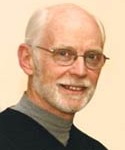To: Humanist Discussion Group
Dear colleagues,
The great historian of science, mathematics, technology and computing, Michael S. Mahoney, Professor of History at Princeton, died last night after a severe heart-attack while swimming.
Mike, as everyone knew him, was one of those very few for whom I would have relinquished many of my years and the life that has come with them in order to be his student. I first met him through his writings while I was trying to figure out what relation humanities computing might have to the experimental sciences. I could see that both kinds of practice shared the epistemic use of equipment, so I figured there must be some relation worth knowing about. Characteristically Mike put versions of most of what he wrote online, so familiarity came easily, and some understanding followed. Then I buckled down and worked my way through papers such as the wonderful “Software as Science — Science as Software” (2002), which I must have read 5 or 6 times at the first go. Then another historian of science, Jed Buchwald, an old friend and a former student of Mike’s and Thomas Kuhn’s at Princeton, invited me to give a paper at the Dibner Institute (MIT), at a conference on the history of recent science. This gave me a chance to try out the ideas I had formed, based largely on Mike’s work, on the subject of humanities computing and the sciences. Subsequently, as the paper was working its way into print, Mike served as a reviewer, anonymous of course but immediately recognizable. Put as simply as I can, his commentary on that paper taught me how to do it right. Or, rather, as right as I am able.
When I was asked to organize a year-long lecture series at King’s London, which I entitled ‘Digital Scholarship, Digital Culture’, Mike was one of those I invited. His lecture, “The histories of computing(s)”, along with the rest were later published in Interdisciplinary Science Reviews 30.2 (2005). Required reading for everyone in humanities computing, I’d say, and I would extend the invitation to all historians of any stripe. Faced with a hugely intractable subject for the intellectual historian’s craft, Mike had the wit and wisdom to understand and the honesty to express what we cannot say about computing. “The major problem”, he wrote in ‘Issues in the history of computing’, “is that we have lots of answers but very few questions, lots of stories but no history, lots of things to do but no sense of how to do them or in what order. Simply put, we don’t yet know what the history of computing is really about.” This from someone who knew the mathematical and technological bases of computing, how to trace the many strands of computing’s development and (as Siegfried Zielinski has said) to look for the new in the old rather than the old in the new. “Hype hides history”, he remarked in his King’s lecture. He knew that questions were the scholar’s gold and that they were being obscured by the promoter’s (and the promoter’s academic helper’s) shameless blather. He did more than anyone else I know to show us how we might find that wealth.
I cannot claim a long personal relationship. I wish I had been of the right age at the right time and place for that to happen. But I can hear the voice and see the face. I know more from him of what our kind can do. Thank you, Mike. Farewell.
Yours,
WM
staff.cch.kcl.ac.uk/~wmccarty/
